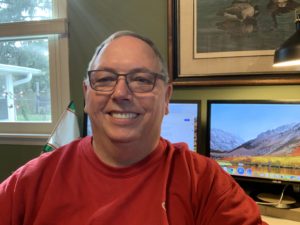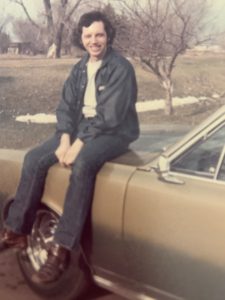
I was thirteen years old on February 4, 1964, when the Beatles, with their mop haircuts, appeared on the Ed Sullivan Show and drew the largest audience ever on television. It did not take long before I grew my hair out to a mop haircut.
Prior to the Beatles, I was into the surfer look. I was and still am a Beach Boys fan. At my daughter Maria’s wedding she and I did the father-bride dance to the Beach Boys song, God Only Knows. “God only knows what I would have done without you” takes on a different meaning between a father and daughter. But I regress.
Back in my 11-13-year-old world, you were either a greaser or a surfer. I was a surfer. The bottom line, going from a surfer to a Beatle wannabe mop required only a couple of weeks’ growth and a reshape.
As I progressed through high school and into college I wore my hair longer and longer. By the time I was a Sophomore in college, it was almost shoulder-length. Except it did not look that long because it turns out my hair is very curly when it is long. I had long sideburns.
Since getting my first “career” type job after college, as the years past, my hair got shorter and shorter. It has been years since I needed a hairdryer. My Cost Cutters haircut is now a quarter-inch long on the sides and about three-quarters of an inch long on the top.
Today, because of social distancing I am again growing my hair out. My hair is not long yet because I was getting my haircut at about 4:00 in the afternoon on the day Cost Cutters shut down in reaction to the pandemic. Having longer hair just does not seem like a big deal in the giant scheme of things. Been there, done that.
Every afternoon, Linda and I go out for walks. As we do so we see kids playing in their yards. We admire the chalk art they drew on the sidewalks. We greet and chat with neighbors about this and that along the way. The pandemic is a terrible thing but walking around the neighborhood during a pandemic is quite pleasant.
I see my neighbors far more frequently than prior to the Stay at Home order. We stand apart as we talk. At first, we mostly talked about having to stay at home but not so much anymore. Now it is about more normal things like yard maintenance, movies to stream, gossip, how to get out a stain and the like. There are worse ways to spend our time.
I chatted with the couple who live across the street and down a few houses. They are both working from home from their corporate jobs. They are spending far more time with their 18-month-old daughter who would otherwise be at daycare. Of course, it is a blessing but it is also a challenge. That little girl loves to be outside and online meetings are not outside. It is fun to watch and interact with them from across the street. Little Josephine now waves back when I wave at her.
We certainly are not eating at restaurants. Three times we ordered and picked up. Once from Chianti Grill, once from Carmello’s and once from McGoverns. That worked well but mostly we now cook at home. We grill steaks, hamburgers, and chicken. The spaghetti and meatballs were good and the leftovers were nice. Mix in a couple of hot dishes, Ikea Swedish meatballs we found in the freezer downstairs and we are doing fine. Some meals are better than others. However, by and large, we are doing what we told ourselves we should do for years. Eat more at home and less at restaurants.
Just an observation from Instagram and Facebook posts. It feels like many of the families which were constantly running from one extracurricular activity to another are sort of appreciating not having every minute of their lives occupied with scheduled activities. I wonder if some families will choose to be involved with fewer activities post stay at home order.
Sports are a big part of the economy. Shutting them down is a big deal. I was looking forward to watching the MN Twins this season but I have to say I do not miss them as much as I thought I would. It makes me wonder if sports will become less of a big deal post-pandemic.
I got to say I am enjoying all of the stripped-down music performances. I stream music now but when I look at my old music cd collection it is filled with highly produced music such as The Beatles, The Beach Boys, Motown, etc. Listening to an artist with a single acoustic guitar or piano singing their song is kind of refreshing.
Pandemics are scary. The impact of our reaction to a pandemic is something historians will study and debate. However, the grandparent in me feels maybe parents spending more time with their kids, on balance, is generally a good thing. I sort of like spending a little less time worrying about how the home team is doing. Connecting with my neighbors is nice. As disrupted as normal is right now, longer hair than I prefer is just not very important.
The closer you look the more you see.
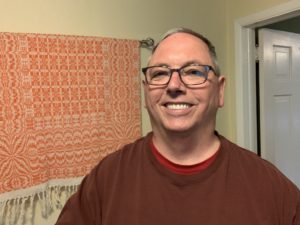
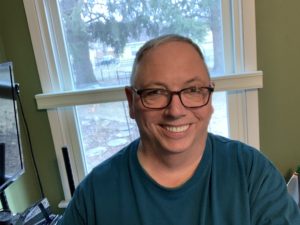
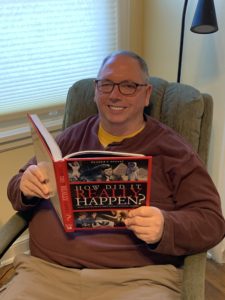

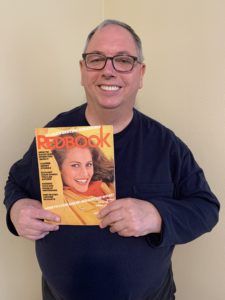
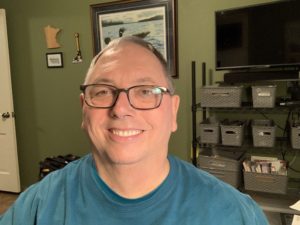 In the fourth or fifth grade, as a geography lesson, we drew flags from the countries of our nationality. I drew Swedish and Norwegian flags. Mom’s side, Swedish. Dad’s side, Norweigan. Over the years, my guess is I have been asked my nationality hundreds of times. Maybe thousands of times.
In the fourth or fifth grade, as a geography lesson, we drew flags from the countries of our nationality. I drew Swedish and Norwegian flags. Mom’s side, Swedish. Dad’s side, Norweigan. Over the years, my guess is I have been asked my nationality hundreds of times. Maybe thousands of times. 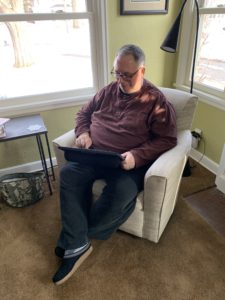 Let us pretend a kid wants me to play trucks. I probably would politely say no because crawling around in the sand takes a bigger commitment at my age than I am willing to commit to. I can make engine noises and push a truck with the best of them. However, crawling around in the sand actually would be tough.
Let us pretend a kid wants me to play trucks. I probably would politely say no because crawling around in the sand takes a bigger commitment at my age than I am willing to commit to. I can make engine noises and push a truck with the best of them. However, crawling around in the sand actually would be tough. 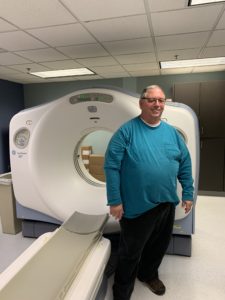 About a month ago, mid-November 2019, my Urologist called saying I likely had early-stage kidney cancer. Since then appointments, Christmas shopping, and surgery. My right kidney, along with a cancerous tumor was removed.
About a month ago, mid-November 2019, my Urologist called saying I likely had early-stage kidney cancer. Since then appointments, Christmas shopping, and surgery. My right kidney, along with a cancerous tumor was removed. 